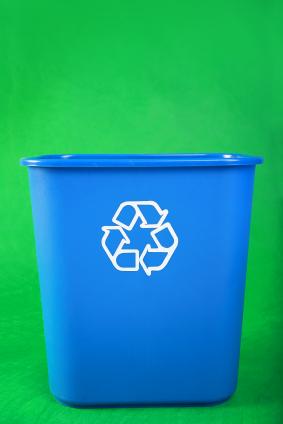
Learning the facts about recycling paper will help you as you fulfill your part to keep our environment green. You only need to look around you to see that paper is everywhere and of course, the need for it is essential. If we keep our minds focused on the desire to be friendly to our Earth and her resources, recycling will become important. After a while, we will be in the habit of recycling the paper we use in the course of a given day. Likewise, we will teach our children so that recycling becomes as common and familiar as ABC.
Why Recycle Paper?
Statistics show the following:
- A typical office generates about one pound of paper per employee and that from that paper, 77 percent of what is wasted in offices across the country is recyclable.
- Most of the paper wasted is high grade paper.
- Using old paper to make new paper uses 30 to 50 percent less energy than making paper from trees.
- Pollution is also reduced by 95 percent when used paper is made into new sheets.
- 40 percent of all waste going to landfills is paper. Cutting down on paper waste will extend the lives of our landfills.
- Newspaper can be recycled into egg cartons, game boards, new newspaper, gift boxes, animal bedding, insulation and packaging material.
- Office paper is recycled into paper towels, tissue paper and toilet paper.
- Corrugated cardboard is created into new cardboard and cereal boxes.
With these facts about recycling paper the multiple benefits to the environment are obvious.
What Can be Recycled
The following cardboard and paper items can be placed in the recycle bins to be recycled:
- White paper
- Colored paper
- White and colored envelopes with windows
- Booklets
- Manuals
- Fax and telex copy paper
- Greeting cards
- Adding machine tape
- Carbon-less forms
- Post-It notes
- Soft-covered books with white pages
- Time cards
- Manila folders
- Telephone directories
- Magazines
- Newspapers
- Flyers
Non Acceptable Items for Recycling
The following are not accepted in recycling bins:
- Pizza boxes (unless they have the recycling symbol on them, showing they are made of corrugated cardboard; some pizza restaurants are becoming more eco-friendly)
- Coffee cups
- Candy wrappers
- Tissues
- Paper towels
- Carbon paper
- Brown and kraft envelopes

Recycling Paper in the Office
You may be keen on recycling, but how do you get those in your place of work to think 'Recycle'?
- Have a place by the fax machine or copier to put paper for recycling.
- Buy only the quantity of supplies needed.
- Reduce computer printouts. Use email to send messages to office mates as well as to receive messages.
- Minimize the use of glossy and special types of papers that are difficult to recycle.
- Make two-sided copies.
- Cut down on paper for memos.
- Have a bulletin board with daily updates or with a section where notes can be posted for all to see.
- Keep mailing lists current so when you do mail something out, it won't be returned due to an old address.
- Eliminate duplicate files.
- Encourage all employees to use less paper.
- Convert scratch paper into memo and telephone answering pads.
Buy Recycled Paper
You can purchase recycled paper by searching for companies that sell paper made from recycled paper.
Recycling Saves
According to The Public Recycling Officials of Pennsylvania, resources are conserved when paper is recycled. For every ton of paper that is recycled, the following are saved:
- 17 trees
- 275 pounds of sulfur
- 350 pounds of limestone
- 9,000 pounds of steam
- 60,000 gallons of water
- 225 kilowatt hours
- 3.3 cubic yards of landfill space
Now that you know the facts about recycling paper, get out there and practice it!







